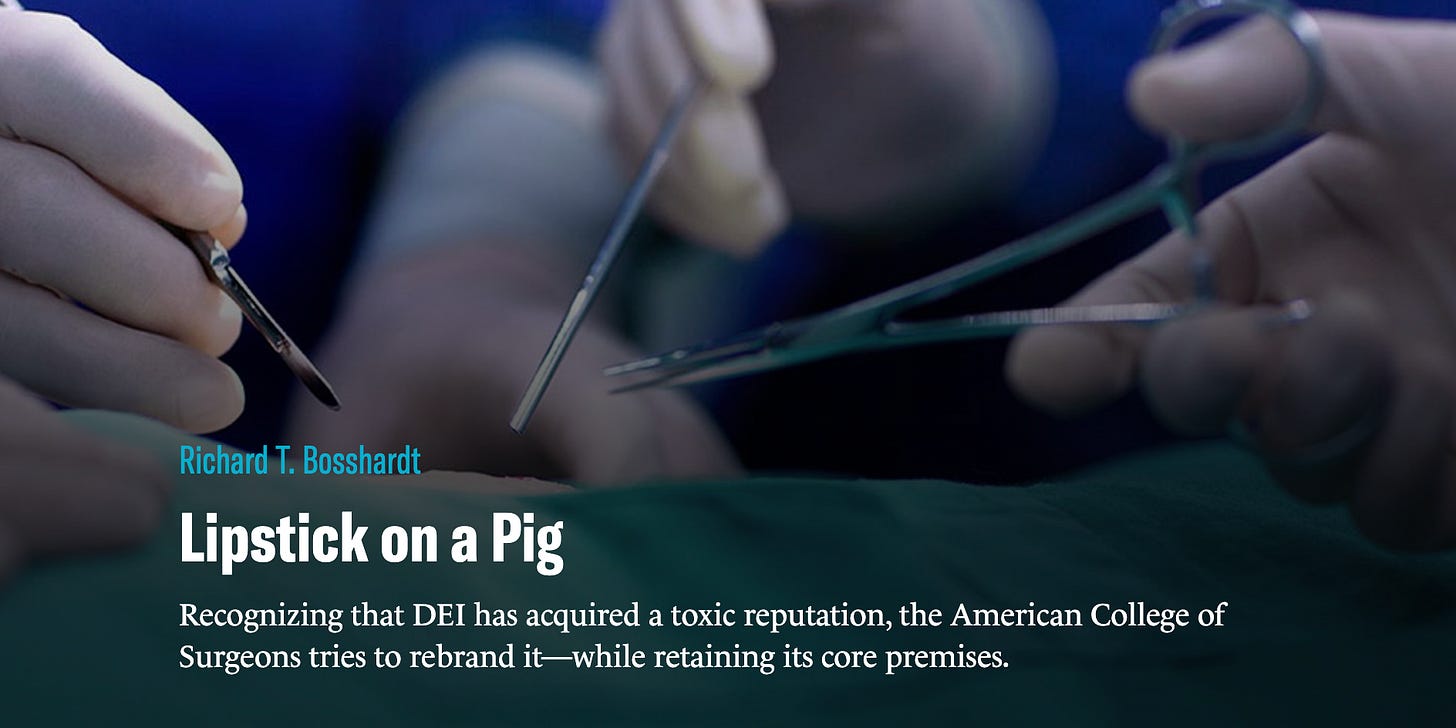From Concession Speeches to Constructive Dialogue
For FAIR’s Substack, Jefferson Shupe offers a post-election proposal.
The Right and Left often look at the same thing from different angles. We don’t think quite the same, and we’re accustomed to shaming and fighting each other for it. But there are also times we can leverage it. There is a lot we disagree on fundamentally, but with good faith and a little humility, we can also help make each other better. The Right can help the Left see opportunities they’re missing, and how to achieve their goal with a new approach that the Right won’t object to as much. The Left can point out hidden dangers of the plans on the Right, or help them see ways to move forward, better living up to their own principles.
Misinformation: A Flawed Concept
For Quillette, FAIR’s Chairman of the Board Angel Eduardo and Adam Goldstein write about misinformation, truth being difficult to ascertain, and how there will always be more ways to be wrong than right.
There is no doubt that misinformation is a problem. The inability to agree upon what is and isn’t true clearly hinders our capacity for progress. Our modern technologies allow us to silo ourselves in pseudo-realities and distance ourselves from ideas we find ugly or inconvenient. Without a shared reality and baseline of information, society as we know it would become impossible to sustain. But laws are blunt tools and liable to do more harm than good here. Our governments are made up of human beings, susceptible to error. Granting them the power to determine and enforce the truth robs us not just of our agency and right to free expression, but also our responsibility as individuals living in the twenty-first century.
Polarization isn’t just a phase. It’s our new default setting.
For The Washington Post, FAIR Advisor Shadi Hamid writes about the current election cycle and increasing polarization.
Polarization isn’t always or necessarily bad, however. Deep differences are the lifeblood of a vibrant democracy, which depends on candidates and ideas vigorously competing with one another. The largest questions of life and politics invite such disagreement precisely because they implicate our deepest moral and philosophical convictions.
It is tempting to view today’s elevated polarization as an aberration, suggesting a return to ordinary levels soon enough, perhaps after Trump leaves the political scene. But the post-World War II era might itself have been the aberration, during which the presence of an external communist threat gave the impression of greater consensus than there actually was. Not only that, the rapid secularization of the past two decades — evidenced by church membership plummeting to record lows — has introduced a new element of social instability.
Six Americans doing the unexpected on Election Day
Many Americans expect bitterness and mistrust between Democrats and Republicans on Election Day. Here’s something they won’t expect: hundreds of everyday liberals and conservatives pairing off at polling places nationwide to try to show voters — and themselves — that whoever wins, our union can’t lose. What’s motivating these Trump and Harris voters to stand side-by-side in front of anxious voters Nov. 5? Braver Angel’s Monica Guzman talks to pairs in a red state, a blue state, and a swing state to find out.
Lipstick on a Pig
For City Journal, FAIR in Medicine Fellow Dr. Richard T. Bosshardt writes about the American College of Surgeons attempt to rebrand DEI.
The new toolkit retains, without modification, perhaps the most repellent aspect of DEI—the theory of racial concordance in medicine. This concept states that patients receive better care and obtain better outcomes from surgeons of the same race. The toolkit still cites a discredited study purporting to show that black babies have better survival odds if the doctor who cares for them is black. This is a slap in the face of all physicians, who do their utmost for every patient, regardless of race.
If the ACS really wants to show that it is making meaningful changes, it could do so by encouraging robust debate about DEI, Inclusive Excellence, or any other name it may go by. Instead, it has chosen to ban dissenters from its forums.
The shift to “inclusive excellence” is a perfect example of trying to put lipstick on a pig. No matter how thickly you apply it, it remains a pig.
42 women who argued First Amendment free expression cases before the Supreme Court — First Amendment News 388
For the Ronald K.L. Collins' First Amendment News, Collins writes about the history of women arguing for free speech in the highest court in the land.
FAIR News Podcast
For audio versions of our FAIR News and FAIR Weekly Roundup newsletters, subscribe and listen to FAIR News Weekly on Apple Podcasts, Spotify, Google Podcasts, or via RSS feed.
Join the FAIR Community
Join us, and become a member of FAIR.
Become a FAIR volunteer, or join a FAIR chapter.
Sign-up for a Welcome to FAIR Zoom information session to learn more about our mission.
Share your reviews and incident reports on our FAIR Transparency website.











